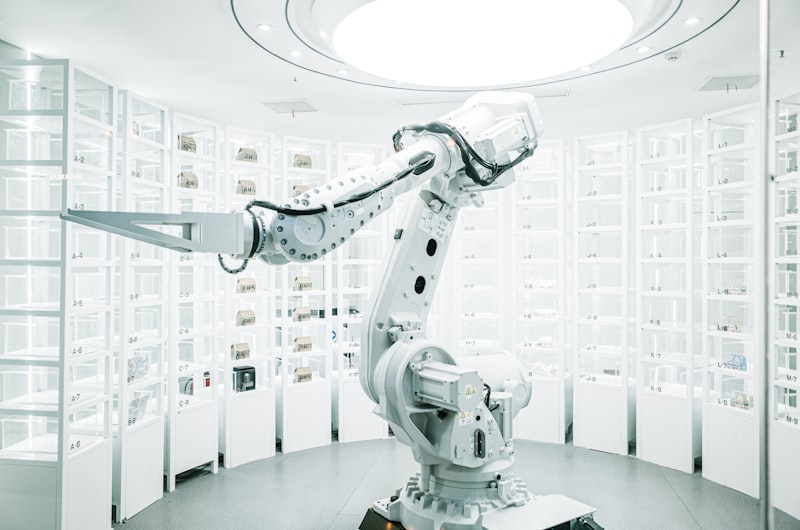AI isn’t just the stuff of science fiction anymore. It’s a game-changer in the field of criminal investigations, especially when it comes to cracking cold cases. But how exactly can a machine, devoid of human emotions and intuition, assist in solving mysteries that have baffled investigators for years?
To begin with, AI thrives on data. It can sift through massive amounts of information in a fraction of the time it would take a human. Imagine feeding AI algorithms with decades worth of crime scene photos, witness statements, forensic reports, and other critical data points. It can spot patterns and connections that might elude even the most seasoned detective.
Take facial recognition technology, for instance. AI can analyze old photographs and compare them with recent images in databases, potentially identifying suspects who have changed their appearance over time. This capability alone has the power to breathe new life into stagnant investigations.
Moreover, AI-powered algorithms can analyze geographical data, timelines, and behavioral patterns to create sophisticated models of how a crime might have unfolded. By crunching numbers and processing scenarios, AI can generate leads that human investigators might have overlooked, simply because of the sheer volume of information to process.
But it’s not just about crunching numbers and scanning photos. AI can also assist in language processing, decoding old transcripts or letters for hidden meanings or connections. It can analyze voice recordings or surveillance footage with a precision that was once unimaginable.
Of course, AI isn’t infallible. It still requires human oversight and interpretation. After all, it’s human ingenuity that programs these algorithms and sets the parameters for analysis. AI is a tool, albeit a powerful one, that complements the skills and intuition of human detectives.
Unsolved Mysteries: How AI Could Crack Cold Cases
Imagine AI as a digital detective, sifting through mountains of data with lightning speed and precision that human investigators can only dream of. It can analyze patterns, connect seemingly unrelated pieces of information, and identify potential leads that might have been overlooked. This capability is particularly valuable in cold cases where evidence may have degraded over time or witnesses have moved away or passed on.

Moreover, AI doesn’t suffer from human biases or fatigue. It approaches each case with impartiality, focusing solely on the data at hand. This objectivity can lead to fresh insights and perspectives that human investigators, bound by experience and intuition, might overlook.
While AI isn’t a panacea for all investigative challenges, its potential to crack cold cases is undeniably promising. As technology advances and algorithms improve, so too does AI’s ability to assist law enforcement agencies in solving crimes that have long remained unsolved. It stands at the forefront of a new era in criminal justice, where data-driven approaches merge with traditional investigative methods to bring closure to victims and their families.
The integration of AI into cold case investigations represents a leap forward in the fight against crime. It offers a glimpse into a future where mysteries that once seemed insurmountable may finally find resolution, thanks to the relentless pursuit of justice driven by artificial intelligence.
From Clues to Convictions: AI’s Role in Cold Case Breakthroughs
Imagine a scene straight out of a detective thriller: a cold case, long forgotten, suddenly brought back to life with new leads and evidence. This isn’t just fiction anymore; artificial intelligence (AI) is revolutionizing how law enforcement tackles unsolved mysteries from decades ago.
AI, with its ability to sift through vast amounts of data and detect patterns that humans might miss, has become a crucial tool in cracking cold cases. It acts like a digital detective, tirelessly analyzing evidence, connecting dots, and uncovering hidden links that could lead to breakthroughs.
In the realm of cold cases, where traditional investigative methods often hit dead ends, AI offers a fresh perspective. It can analyze forensic evidence, such as DNA samples or fingerprints, with unprecedented accuracy and speed. This technological advancement isn’t just about speeding up investigations; it’s about uncovering new angles and possibilities that could change the course of an entire investigation.
Moreover, AI doesn’t rely on intuition or gut feeling; it relies on data. By feeding historical case data into AI algorithms, investigators can train these systems to recognize similarities across cases, identify potential suspects, and even predict behaviors based on past patterns.

AI’s role in solving cold cases isn’t just about technology; it’s about the profound impact on justice and closure for victims’ families. As AI continues to evolve, so too will its potential to uncover the truth buried beneath layers of time and uncertainty.
Cold Case Files Reopened: AI Techniques That Could Solve Decades-Old Crimes
AI brings a fresh perspective to forensic analysis by sifting through vast amounts of data that might have been overlooked by human eyes. Its ability to recognize patterns, even in complex datasets, is akin to finding a needle in a haystack—a feat that could crack open cases thought unsolvable. Through machine learning algorithms, AI can identify correlations and anomalies in evidence, suggesting new avenues for investigation that human detectives might have missed.
One of the groundbreaking AI techniques applied to cold cases involves image and facial recognition. By analyzing old photographs, surveillance footage, or composite sketches, AI can now reconstruct faces and match them against contemporary databases, potentially identifying suspects who have evaded capture for years.
Moreover, natural language processing (NLP) allows AI to analyze written documents such as witness testimonies, letters, or even transcripts from old interrogations. It can detect linguistic patterns and sentiments, uncovering subtle clues or inconsistencies that could reignite leads or discredit alibis.
The integration of AI with forensic science doesn’t just stop at analysis—it extends to predictive modeling. Algorithms can simulate scenarios based on crime scene data, helping investigators visualize how events may have unfolded and where to focus their inquiries. This predictive capability not only saves time but also guides resource allocation towards the most promising leads.
The Detective’s New Partner: AI Tools Revolutionizing Cold Case Investigations
AI tools are becoming indispensable in cold case investigations, offering capabilities that augment human expertise. These tools analyze vast amounts of data—crime scene photos, witness statements, forensic reports—with speed and accuracy far beyond human capacity. They sift through years of evidence, identifying patterns and connections that might elude even the most seasoned detectives.
One of the remarkable aspects of AI in this field is its ability to spot correlations that human investigators might overlook. By processing information objectively, AI tools can uncover hidden links between seemingly unrelated pieces of evidence. This analytical prowess not only accelerates the investigative process but also provides fresh perspectives that can reignite stalled cases.
Moreover, AI enhances the efficiency of investigative teams by automating routine tasks such as data entry and analysis. This frees up detectives to focus on the nuanced aspects of a case—interpreting behavioral cues, conducting interviews, and developing theories—tasks where human intuition and empathy remain irreplaceable.
The integration of AI in cold case investigations is akin to adding a new, highly skilled partner to the detective team. It doesn’t replace human detectives but complements their skills, making the investigative process more robust and effective. This collaboration underscores the evolving nature of crime-solving, where technology serves as a force multiplier in the pursuit of justice.
As AI continues to advance, its role in cold case investigations will likely expand further, pushing the boundaries of what’s possible in solving even the most perplexing cases. The partnership between detectives and AI tools represents a significant leap forward in the quest to bring closure to victims and their families, offering hope where previously there was only uncertainty.
Using AI to Unlock the Past: Solving Cold Cases with Cutting-Edge Technology
Imagine a world where crimes once thought unsolvable become clear puzzles waiting to be unraveled. Thanks to advancements in Artificial Intelligence (AI), this future is not as far-fetched as it sounds. “Using AI to Unlock the Past: Solving Cold Cases with Cutting-Edge Technology” explores how modern technology is revolutionizing criminal investigations.
AI’s role in solving cold cases is nothing short of groundbreaking. By analyzing vast amounts of data that human investigators might overlook, AI algorithms can spot patterns and connections that lead to breakthroughs. It’s like having a supercharged detective with an infinite memory and unparalleled attention to detail.
One of AI’s greatest strengths lies in its ability to sift through mountains of evidence swiftly. What might take human investigators years to review, AI can process in a fraction of the time, accelerating the pace of justice. This efficiency isn’t just about speed; it’s about uncovering crucial clues that could otherwise remain buried in the depths of case files.
Moreover, AI isn’t constrained by biases or fatigue. It approaches each case objectively, considering every possibility based on the evidence presented. This impartiality can be a game-changer in cases where emotions and preconceptions might cloud human judgment.
Think of AI as a digital detective, tirelessly combing through data to reconstruct timelines, identify suspects, and even predict behaviors. It’s a tool that not only aids in solving current mysteries but also holds promise for preventing future crimes by learning from past patterns.
In essence, the marriage of AI and criminal investigations represents a new frontier in law enforcement. It’s about harnessing the power of technology to bring closure to victims’ families and ensure that justice is served, even decades after a crime is committed.
As we look ahead, the potential of AI in solving cold cases continues to expand. With each new development in machine learning and data analytics, the tools available to investigators become sharper and more effective. The future of criminal justice is here, driven by innovation and powered by AI.

